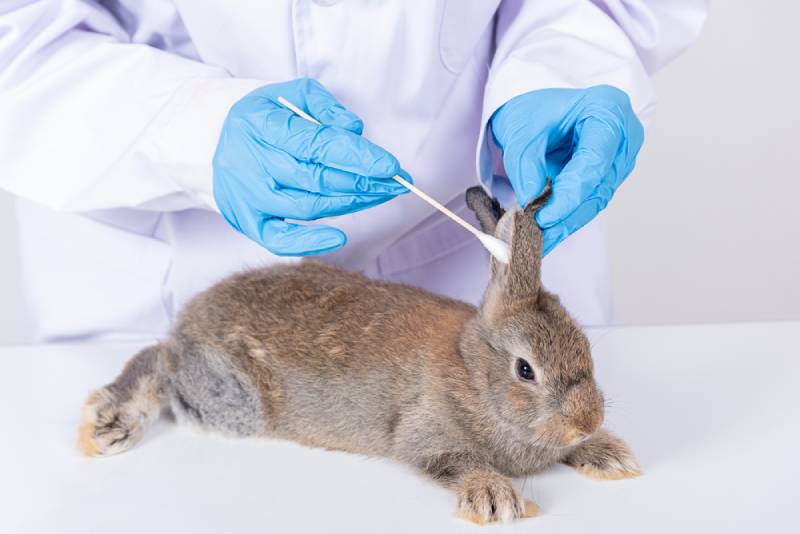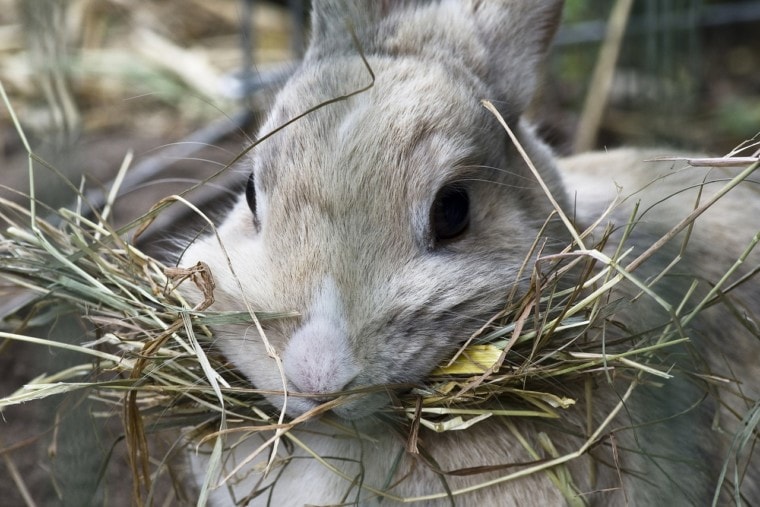
If you’ve recently adopted a pet rabbit, you may know they eat different foods, ranging from hay to leafy greens. However, even though a few foods are safe to feed your pet rabbit, most of their diet should be hay, and the rest should be provided to them as treats on occasion.
It’s best to give your rabbit plenty of hay, a few leafy veggies, a few pellets, and a few fruit treats. If you stick to this diet for your rabbit, it should be healthy and happy. Below, we’ll tell you about the four foods you can feed your rabbits and discuss a few you shouldn’t feed your rabbit.
The 5 Foods to Feed Your Rabbit
1. Hay
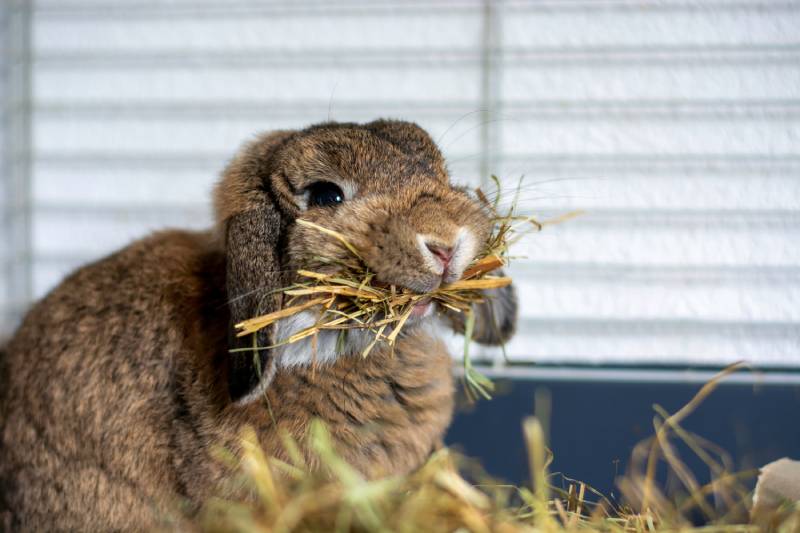
Hay should comprise at least 80% of your rabbit’s daily food intake. Whether that’s Timothy, oat, or orchard hay is up to you, but hay should make up the largest part of your rabbit’s diet.
The hay you give your rabbit should be supplied in unlimited amounts since it’s a primary source of fiber for your rabbit that helps the digestive system develop and stay healthy. It is recommended, however, that you only feed a majority of alfalfa grass hay to young rabbits, as it’s not as good for adults because it has a high protein content and more calcium than it should. To put it in perspective a growing rabbit can safely ingest 60% alfalfa hay and 40 % Timothy hay, but in the adults, you should not offer more than 30-40% alfalfa hay and have 60-70% Timothy hay.
If you’re still unsure whether the alfalfa hay is good for your rabbit or if you should stop feeding it, it’s best to ask your vet’s advice.
2. Timothy Pellets
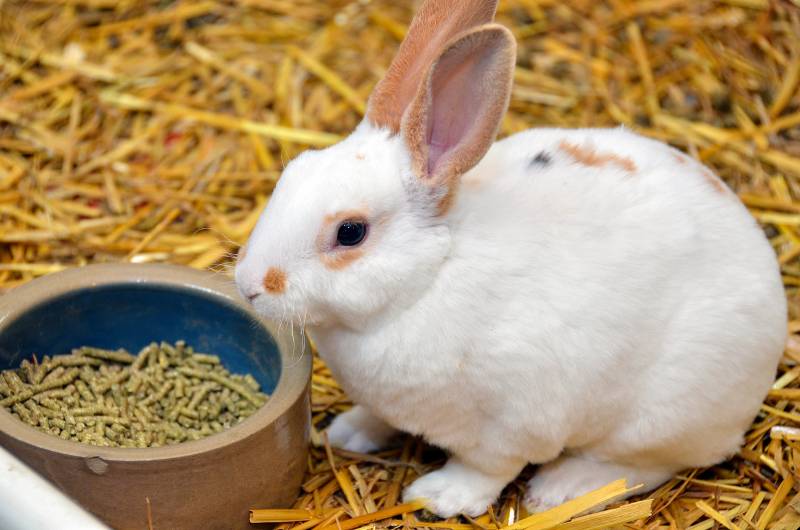
Timothy pellets are compressed feed made from Timothy hay, but pellets should comprise no more than 5% of your rabbit’s diet. They give the rabbit additional nutrients, such as protein, vitamins, and minerals, that they can’t get from eating hay and fresh veggies.
However, it would be best if you feed your rabbit Timothy pellets sparingly. They need to make up the smallest portion of your rabbit’s food intake to prevent excessive weight gain, which can lead to digestive issues, obesity, and other health issues.
As with any food you feed your rabbit, make sure that the Timothy pellets you choose are of the highest quality and contain no artificial preservatives or cereal ingredients that your rabbit doesn’t need. While you wouldn’t think you’d have to worry about these additives with rabbit food, you’ll find quite a few companies who use them in their pellets, so be careful what you buy.
3. Leafy Greens
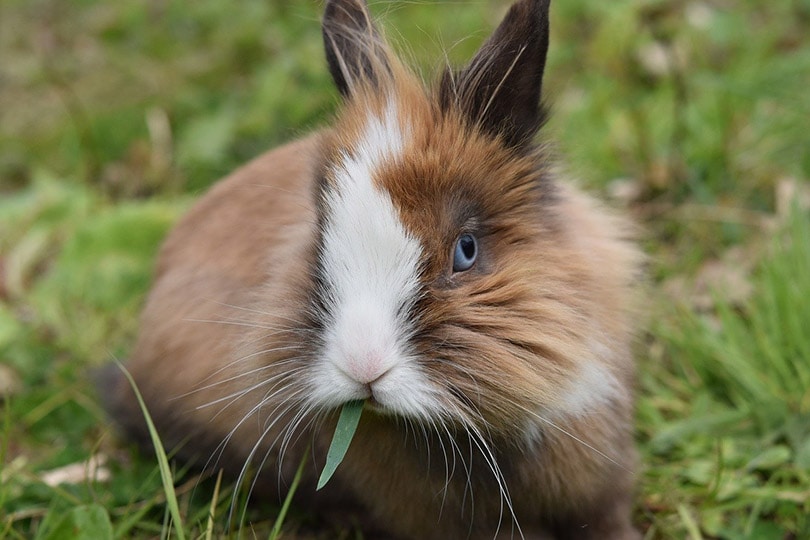
Anyone who has ever had a garden knows how much rabbits love leafy greens. Pet rabbits are no exception; you can give them leafy greens as part of their everyday diet, but only 10-15% of it. Overfeeding leafy greens can cause diarrhea, which requires an immediate trip to the vet in severe cases, as it can prove fatal to your pet if not treated right away.
When you feed your rabbit leafy greens, watch for any signs of digestive problems until you know the rabbit tolerates the food well.
4. Other Veggies
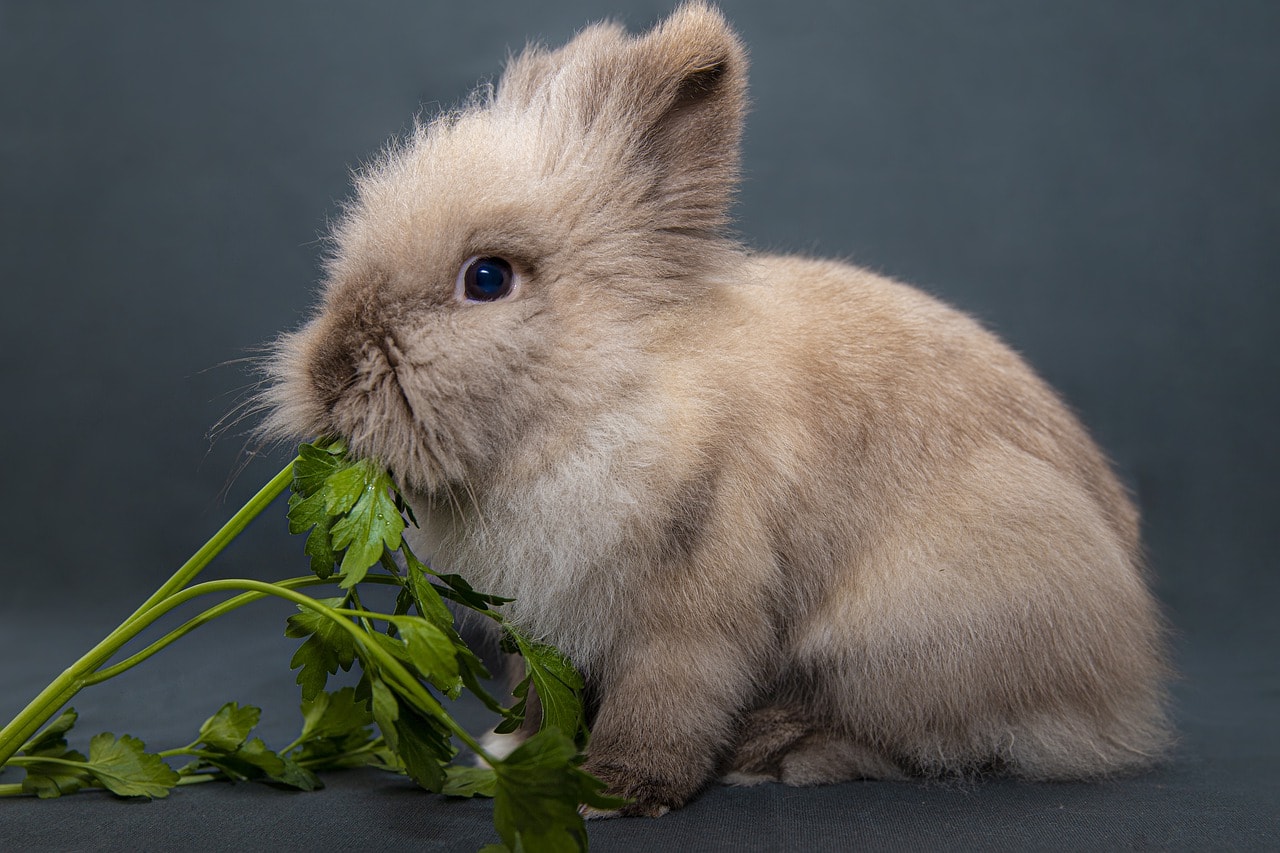
Of course, there are other veggies that rabbits love just as much as they do the leafy greens listed above. However, these veggies should never make up a huge portion of your rabbit’s daily food intake. Because some of them, like carrots, are loaded with carbohydrates and sugar, they should only be served as treats.
5. Fruit Treats

Keep in mind that for rabbits, fruits are like candy, so you should never give them more than 5% of their diet in fruits. The reason behind this is that fructose is given in excess and can wreak havoc on your rabbit’s gut microbiome. That said, rabbits can enjoy a few pieces of fruit here and there given as a special treat, and they can provide some vitamins to your bunny.
Remember the amount needs to be tiny since it’s only 5% of their calories and rabbits are not very big, but they will appreciate this special treat.
Foods Not to Feed Your Pet Rabbit
Now that you know there are a few foods you can feed your rabbit, we’ll list a few foods you should never feed your rabbit below.
Conclusion
Keeping a rabbit as a pet is an amazing experience. They are usually cuddly, sweet, and friendly. However, you can’t feed your rabbit everything you eat, as evidenced by the list above. Some foods can harm your bunny, such as meat, bread, and chocolate.
Hay should make up most of your rabbit’s diet, but you can supplement it with leafy greens and a tiny portion of Timothy pellets. You can also provide small portions of the vegetables we discussed but only as an occasional treat. If you’re unsure of the best diet for your rabbit, you can make an appointment with your vet, who can provide excellent advice on the appropriate diet.
Related Reads:
- Best Weight Gain Foods for Rabbits – Reviews & Top Picks
- Can Rabbits Eat Chicken Feed? Vet-Reviewed Facts & FAQ
Featured Image Credit: Pixabay




